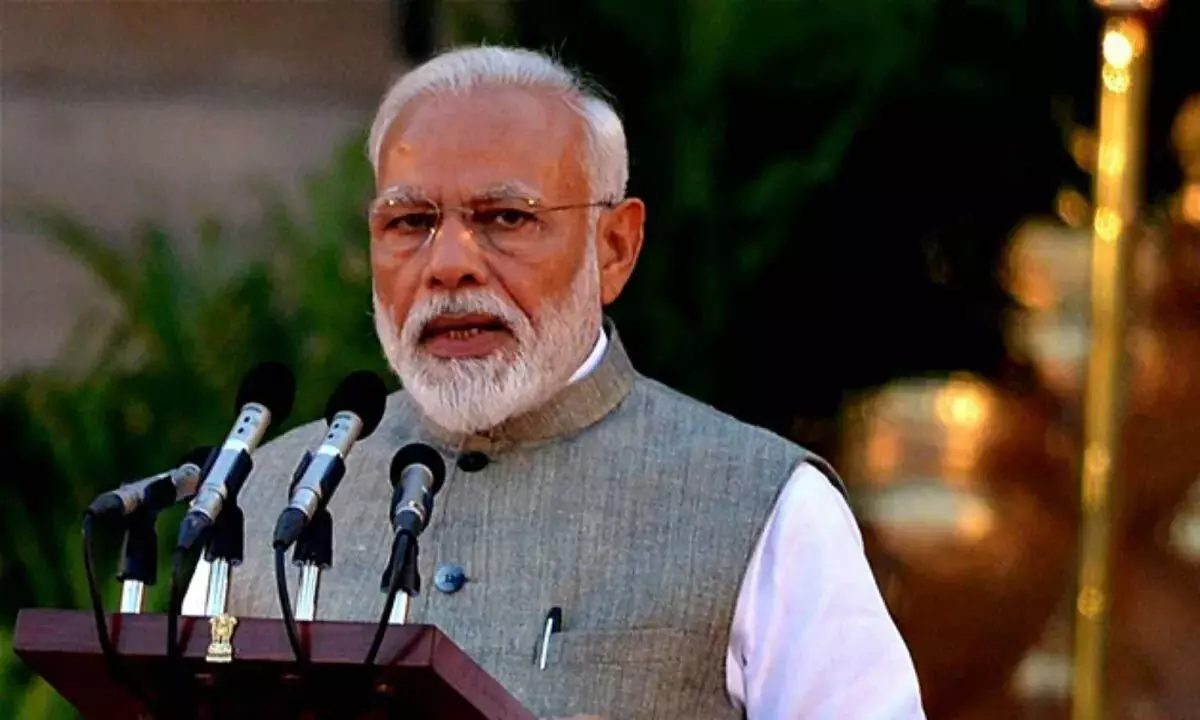Foreign policy: India charting strategy for new balance
India’s combination of strategic congruence and shedding the straitjacket of non-alignment has created space for deeper collaboration
image for illustrative purpose

The US pushback against China in the security domain, which began well before the pandemic, has now acquired a sharper edge. The Biden Administration in Washington has fully embraced the Trump Administration's initiatives in the Indo-Pacific and reinforced the Quadrilateral Forum (that brings together Australia, India, Japan and the United States). Biden took a step forward in unveiling the AUKUS–a new military partnership between Australia, the United Kingdom, and the United States. It involves the transfer of nuclear-powered submarines to Canberra by Washington and London as well as trilateral cooperation on emerging strategic technologies like cyber and artificial intelligence.
Meanwhile, there has been no resolution of the military crisis between India and China triggered by Beijing's aggression in the Ladakh region in the spring of 2020. The military friction between India and China in the high Himalayas boiled over into a deadly clash between the troops of the nations in June 2020 - the first in many decades. Despite continuous engagement at the military, diplomatic and political levels, Delhi has been unable to persuade Beijing to vacate the aggression and restore the territorial status quo ante in Ladakh. As it comes to terms with Chinese hostility and unwillingness to abide by the terms of bilateral engagement negotiated earlier, Delhi had no option but to reassess its China policy and adapt to the new geopolitical dynamic triggered by Beijing's rise.
While many of the US treaty allies are dismayed by a potential American resizing of its post-war global commitments, India is in a position to approach this in a positive framework. The readjustment of the US security role in Europe and Asia provides an opportunity for India to take on more responsibility in terms of security in its neighbourhood and beyond. This would require that India transcends its traditional temptations to act alone and find ways to work with other powers on regional and international security, through bilateral, plurilateral and multilateral mechanisms.
The post-pandemic world has seen India's political engagement with emerging ideas on cooperation amongst democratic states, on building resilient supply chains, and strengthening ad-hoc security coalitions such as the Quad (involving India, US, Australia, and Japan).
As India responds to new global opportunities, the constraints on the country are more internal than external. Without a more rapid and higher-quality growth, India's international performance will remain underwhelming. Equally important is the need to maintain internal coherence. The vast diversity at home has long complicated India's nation-building challenge. In this regard, internal political divisions will not only reduce New Delhi's ability to benefit from global possibilities, but also invite external meddling in its domestic politics.
India is showing a growing level of comfort in increasing strategic cooperation with the United States and its allies in the region such as Japan and Australia. India is not about to become an ally of the United States or anyone else, but the combination of strategic congruence and shedding the straitjacket of non-alignment has created the space for deeper collaboration.
India is likely to continue to support a liberal international order, although that will not extend to support for United States exceptionalism. Also, India will want the international order to better reflect the power distribution of the contemporary world. India will not be bound by rules in which it had no say in establishing.
India is committed to significantly increase its defence capability to buttress its strategic autonomy. This will add to its strategic weight. It wants to import less defence equipment and produce more domestically, including through joint ventures.
India is likely to be cautious about pressing a human rights agenda in its bilateral relations nor is it much interested in an international policy of promoting democracy. Moreover, it will hold to this caution notwithstanding its own considerable domestic credentials in relation to human rights and democracy.
The Australia-India strategic relationship stands on its own merits. It is however closely linked to the broader security of the region and therefore inevitably also brings in China, if only because China, like the United States, looms large in the strategic calculations of both countries.
India will want to maximise its economic relationship with China. But it will also be opposed to any move by China to become the predominant power in the Indo-Pacific. And it will be particularly concerned to ensure that China's expanding interest in the Indian Ocean is not given free reign.

